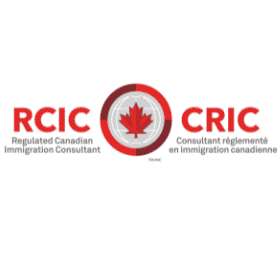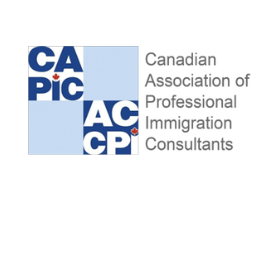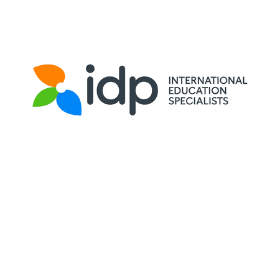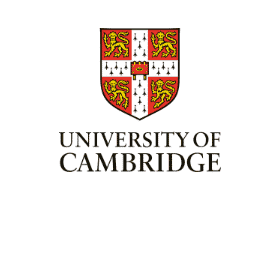International students completing their post-secondary education in Canada may be eligible to apply for a Post-Graduation Work Permit and be able to obtain Canadian work experience.
Canada is offering an opportunity for international students to work in Canada after completion of their studies from 08 months to up to 03 years of the study program length.
Post-Graduation Work Permit Programs are designed for international students seeking to study in Canada, and after the completion of their studies gain Canadian work experience. PGWP programs provide an open work permit, allowing the international students to engage into work for any Canadian employer without having a Canadian job offer at the time they apply.
- Introduction
Post-Graduation Work Permits (or PGWP) are available for international students after completion of their post-secondary education in Canada. Individuals may be able to apply for PGWP if they meet the eligibility requirements. With PGWP they can gain Canadian work experience and work full time for up to three years after their graduation. The length of their work permit is dependent on the duration of their program. Once they are qualified for PGWP, they are issued an open work permit, allowing them to work for any Canadian employer. At the time they apply for PGWP they are not required to have Canadian job offer. The IRCC issues only one PGWP to the eligible international student.
- Eligibility and Requirements
For the international students to be eligible for a Post-Graduation Work Permit at the time of applying they need to have a valid temporary status in Canada or be outside Canada.
Also, they must have the following eligibility criteria:
- Completion of studies in Canada:
- at an eligible designated learning institution (DLI):
- a public post-secondary institution:
- a college
- a trade or technical school
- a university
- CEGEP (in Quebec)
- a private post-secondary institution that operates under the same rules and regulations as public institutions in Quebec
- a private secondary or post-secondary institution in Quebec offering qualifying programs of 900 hours or longer which lead to a diploma of vocational studies (DVS) or an attestation of vocational specialization (AVS)
- a Canadian, private learning institution authorized by provincial law, but only if the student was enrolled in a program of study leading to a degree (associate, bachelor’s, master’s, or doctorate), as authorized by the province, and may not include all programs of study offered by the private institution
- in an academic, vocational, or professional training program that is at least 08 months long
- and study program must be leading into a degree, diploma, or certificate.
- Must have held full-time student status in Canada throughout each academic session of the program or completed programs of study and submit as part of their PGWP application. Except for the following:
- Leave from studies
- Final academic session
- Must have received a transcript and an official letter from the eligible DLI confirming they have met the requirements to complete their program of study and both must be included in a PGWP application.
- For graduates (vocational and professional training programs) in Quebec there is an additional PGWP criteria they must meet which is formed by IRCC, depending on the issued type of diploma.
Special cases PGWP
International students may be eligible for a PGWP in some special cases and have completed their studies in the following:
- accelerated program
- distance learning program or
- requested a leave from studies.
- Process
After the graduates obtain their transcript and official letter from the eligible DLI which is confirming they have completed all study program requirements, they have 180 days (06 months) to apply for PGWP.
They must be in valid status and have a valid study permit. If the study permit is about to expire before they receive their transcript and official letter or submit their PGWP application, applicants must do the following:
- apply for a visitor record to stay in Canada longer or
- leave Canada and apply for their PGWP
Upon applying, students must demonstrate they were authorized to study in Canada by holding or held a valid study permit, without the requirement to obtain a study permit under paragraphs 188(1)(a) and (b) of the Immigration and Refugee Protection Regulations.
- Supporting documents
Two most important documents that are required at the time of submitting an application are a confirmation letter of completion of the study program and an official transcript provided by their DLI. An officer may request for additional documents during the process.
- Alerts for refused applicants
Some international students could be ineligible for PGWP if they have:
- already been issued a PGWP
- studied English or French as their second language
- took general interest or self-improvement courses
- participated in the Government of Canada Awards Program funded by Global Affairs Canada
- given funding from Global Affairs Canada, although if the applicant got a Study in Canada scholarship, the applicant is still eligible for a PGWP
- had an Equal Opportunity Scholarship, Canada-Chile
- participated in the Canada-China Scholars’ Exchanges Program
- participated in the Organization of American States Fellowships Program
- completed most of the study programs by distance learning such as online courses, e-learning or correspondence
- completed a study program at a non-Canadian institution located in Canada
DLI list
When applying for study permit for Canada applicants must provide the Designated Learning Institution number (DLI #) beginning with the letter “O” on the study permit application form.
In some cases, students may be exempt from providing a letter from a DLI, or from providing a DLI number on their application. The following cases provided below may include, but are not limited to:
- Students at a primary or secondary institution as these schools are all automatically designated, and no DLI number is provided.
- A family member of a foreign national whose application for a work permit or a study permit is approved in writing before the foreign national enters Canada. In this case, the family member may obtain an open study permit.
- Some institutions in Quebec are designated by the provincial government, but do not have a unique DLI number.
Sometimes, DLI’s can lose their designated status. The international student may be affected if DLI’s status is lost considering the following examples:
- If the applicant applies for a study permit with a letter of acceptance from an institution that is not a DLI, the study permit application is refused.
- If the applicant applies for a study permit with a letter of acceptance from a DLI, but during the process the DLI loses its designated status before the study permit is issued, the student has three options and may:
- Withdraw the application
- Submit a letter of acceptance from a different DLI
- Do nothing, in which case the application will be processed according to the information provided and will therefore be refused.
- If the applicant receives a study permit for a DLI, and the institution loses its designated status after the issuance of the study permit, the student may:
- Transfer to another DLI
- Continue studying at the non-designated DLI until the study permit expires. But the study permit may not be renewed for the non-designated institution.
For the list of designated institutions (DLI) please visit the following website https://www.canada.ca/en/immigration-refugees-citizenship/services/study-canada/study-permit/prepare/designated-learning-institutions-list.html.








